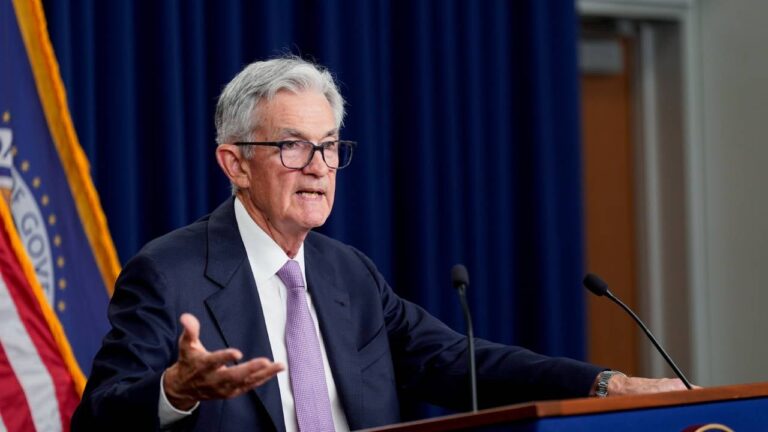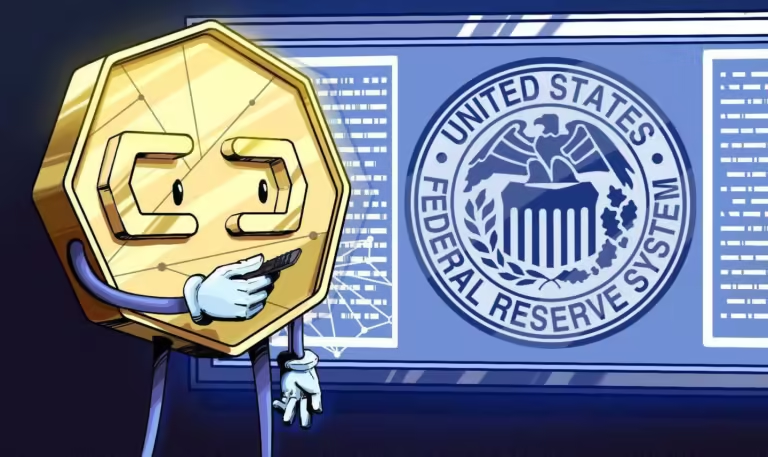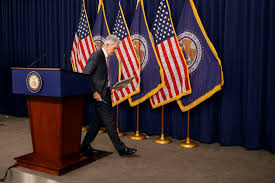The Heart of the Issue: Is Bitcoin a Strategic Asset for the U.S.?
In a recent press conference, Federal Reserve Chair Jerome Powell dropped a bombshell: the U.S. government is not allowed to own Bitcoin. When asked about President-elect Donald Trump’s bold promise to create a strategic Bitcoin reserve, Powell made it clear that the Federal Reserve (Fed) cannot hold Bitcoin, and it isn’t planning to push for a law change anytime soon. This statement adds fuel to the ongoing debate about whether Bitcoin could play a role in the U.S. government’s financial strategy.
Here’s why this matters and what it means for you:
Why This Is Big:
- The Fed’s Restrictions – Powell’s comment reveals the complex legal structure of the U.S. Federal Reserve. The Federal Reserve Act (a law passed in 1913) sets strict rules about what the Fed can and cannot own. Right now, Bitcoin is on the “cannot own” list. Powell stressed that this isn’t something they are pushing to change, but rather something for Congress to consider.
- Trump’s Strategic Bitcoin Reserve Plan – Ahead of the upcoming elections, Trump has made it clear that he sees Bitcoin as a critical part of America’s future financial strategy. In interviews, he has said the U.S. needs to hold Bitcoin to stay competitive with other nations like China, which are making moves to embrace cryptocurrency. Trump even proposed creating a strategic Bitcoin reserve where the U.S. Treasury would buy 1 million Bitcoin over five years. This idea is exciting to some, but not everyone agrees.
- Growing Support for Bitcoin in U.S. Legislation – It’s not just Trump pushing for this. Other lawmakers are also showing interest. Senator Cynthia Lummis from Wyoming has introduced a bill that would direct the U.S. Treasury to buy a million Bitcoin over five years. This movement reflects the rising influence of cryptocurrency in U.S. politics.
- Bitcoin’s Market Reaction – As soon as Powell made his remarks, Bitcoin’s price took a dip, falling nearly 5%, dropping to about $100,500. This suggests that investors are closely watching these political and regulatory moves, and the idea of a strategic Bitcoin reserve is being heavily debated within the financial community. Some experts, like Zach Pandl of Grayscale Research, believe that countries might adopt Bitcoin, but the next big step could come from sovereign wealth funds in regions like Asia or the Middle East, which already manage massive pools of wealth.
Key Concepts to Remember:
- Federal Reserve Act: This is the law that defines what assets the U.S. central bank can own.
- Strategic Bitcoin Reserve: The idea of the U.S. Treasury buying large amounts of Bitcoin as part of a national strategy.
- Sovereign Wealth Funds: Investment funds owned by governments, typically with assets from countries with large reserves, like those in the Middle East and Asia.
Why This Matters to You:
- Understanding Regulatory Impact: This situation shows how government decisions—whether they allow or ban certain assets like Bitcoin—can directly affect the market. Even statements from central banks can lead to sharp price movements. Staying updated on these political debates can help you make better decisions in the crypto market.
- Potential for Global Bitcoin Adoption: If major countries start building their own Bitcoin reserves, it could lead to Bitcoin becoming a more widely accepted form of “digital gold” in the global financial system. This could push Bitcoin’s value up over time, and as a 20-year-old interested in crypto, understanding these trends is key to making informed decisions about your investments.
- The Future of Bitcoin in the U.S.: The fact that both lawmakers and politicians are engaging with Bitcoin means it could have a huge role in future U.S. financial systems. For you, this means a potential opportunity to learn how global financial institutions are starting to view Bitcoin and crypto as serious assets. Understanding the legal and regulatory landscape is crucial to navigating this evolving space.
By diving deeper into this debate and staying informed, you’re positioning yourself to be at the forefront of the next wave of cryptocurrency adoption. This knowledge is not just about Bitcoin; it’s about understanding how politics and regulation will shape the future of digital assets and the global economy.


